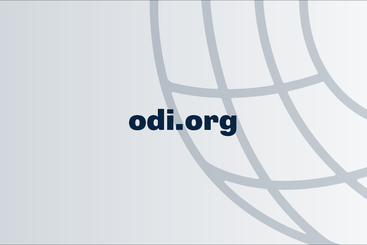Welcome to the March issue of our China and global development round-up. In this issue we cover the 14th Five-Year Plan, the white paper on international development cooperation, the Chinese labour market and resources for ‘translating China’.
The 14th Five-Year Plan
This month, the Chinese government released its draft outline of the 14th Five-Year Plan (FYP) 2021-2025. Bert Hofman published his first impressions (PDF) on the plan, noting that it does not include a five-year growth target for the upcoming period. This may reflect a trend towards de-emphasising growth, or it may just mean that it’s too risky to forecast given the current economic uncertainty. He also notes how the FYP doubles down on efforts to reduce dependence on foreign technology. This is an area where China has been left vulnerable to the tensions with the US, and now wants to focus on homegrown innovation.
Carbon Brief focussed on the climate and energy aspects of the FYP, included under the theme of “new progress of ecological civilisation”. The plan sets numerical targets and indicators around energy and climate change. Many of these are binding targets, which indicates a political willingness to ensure these will be achieved. It also includes a list of “construction projects for the modern energy system” scattered across China. Moreover, the plan does not set a ‘carbon cap’, but mentions that China will “implement a system based primarily on carbon-intensity controls, with the carbon cap as a supplement”.
We expect more analysis to be published in the coming months, and we will include it in the next issue if relevant.
More resources on the white paper on international development cooperation
The previous issue of this round-up discussed the new white paper on ‘China's International Development Cooperation in the New Era’. Since then, more interesting analysis has been published, and I wanted to highlight two pieces.
First, this brief by the United Nations Development Programme is a sharp explainer of what is new and worth looking at in the white paper. Compared to the 2011 and 2014 editions, this white paper is broader in scope. It moves beyond aid and refers to development cooperation, and also includes new modalities. It also integrates international concepts and frameworks, such as global partnerships, as an entry point for China towards global cooperation.
The second piece, a blog by Hong Zhang, provides an in-depth analysis of the white paper. It notes how, compared to the previous ones, the 2021 version has a long preamble on the philosophical underpinnings of China’s international development cooperation. According to the author, this indicates the need to restore the moral orientation of the sector, previously dominated by pragmatism. Moreover, the white paper remarks that China will not “do things beyond its stage of development” and will only “meet international obligations in line with national capacity.” This indicates that the Chinese government is not willing to accept externally imposed rules on its aid provision.
Chinese workers at home and abroad
With movement restricted and many activities moving to the digital space, the digital economy will likely gain ground during the pandemic. But this phenomenon was already taking place before Covid-19 and was shaping labour markets domestically and internationally. This report by Yiu Por (Vincent) Chen analyses the growth of digital labour platforms in China, as well as their role in creating new forms of labour. It provides a detailed picture of who the digital workers are, why and how they work for these platforms.
Turning to Chinese workers abroad, the latest issue of the Made in China journal is a must-read for anyone who wants to understand the labour challenges related to Global China. China ‘going out’ is not only associated with outflows of capital, but also with growing outward migration. These Chinese workers abroad – especially in low- and middle-income countries – are very often seen as privileged expats accused of stealing others’ jobs. But in reality, they often face difficult situations, lack job security and work in precarious conditions. The articles in the journal track the challenges of Chinese workers in Ethiopia, Angola, Mongolia and Cambodia, but also Italy and Japan, providing a very vivid picture of their status and conditions.
Translating China
In Europe, the US and elsewhere, there is a lot of soul-searching happening on how to engage with China. Yet, we often lack the skills needed to understand and translate Chinese concepts and ideas – especially in the policy space – which are necessary to have a meaningful exchange with Chinese stakeholders. Two recently published resources come to the rescue.
The Decoding China Dictionary starts from the idea that certain concepts that are widely recognised and commonly understood by European and American users may have different meanings in China. For instance, Chinese stakeholders frame the development discourse around the notion of anti-imperialism and anti-colonialism, positioning China as a developing country challenging the hegemony of the Global North. The Decoding China Dictionary helps to unpack concepts such as cooperation, development, good governance and multilateralism, providing useful insights into the Chinese viewpoint.
Similarly, a recent paper by Lila Buckley looks at the concept of ‘ecological civilisation’, defined as a uniquely Chinese approach to green economic policy. China is the world’s largest emitter of greenhouse gases, but it is also keen to position itself as a leader of global efforts to reduce emissions. Recognising the urgency of dealing with environmental and climate issues, the Chinese government has made ‘ecological civilisation’ a national strategic priority. According to Buckley, this concept contains many layers. It is a strategic socio-economic goal of the Chinese government, a vision of sustainable development, and a reappraisal of political governance and party institutions. It is also an appeal to traditional Chinese philosophical values through environmental action. A better understanding of ecological civilisation can support the international community’s engagement with China around environmental issues.
If you would like to sign up to receive this China and global development resource round-up regularly, please contact me.

